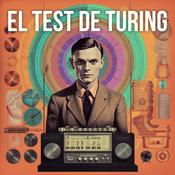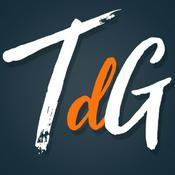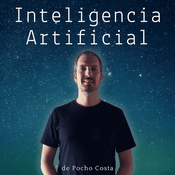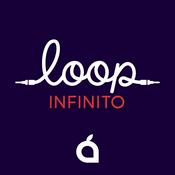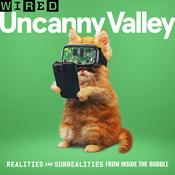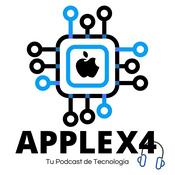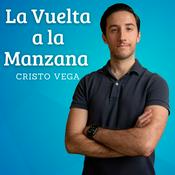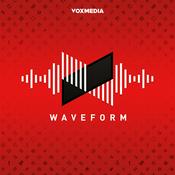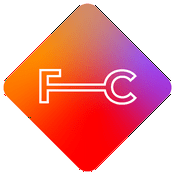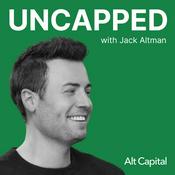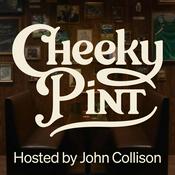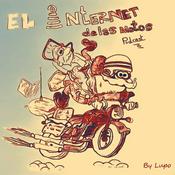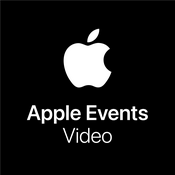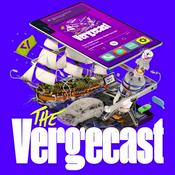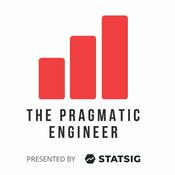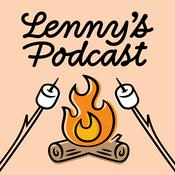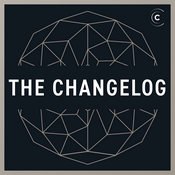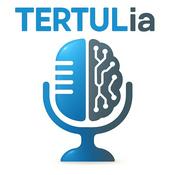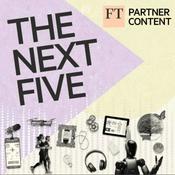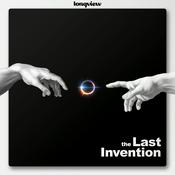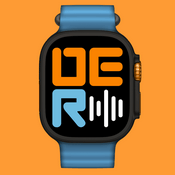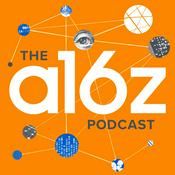Episodios disponibles
5 de 16
- Brie Wolfson: Learning to Love Flounder Mode from Kevin Kelly (Hyperlegible 013)How do I introduce Brie Wolfson? Brie's website – briewolfson.com – is a good place to start. It's a treasure trove. She launched Stripe Press. She started The Kool-Aid Factory. Today, she's the CMO of Positive Sum and Colossus. And there's so much more! She told a story on The Moth! She's written two novels. Everyone is now obsessed with "taste." Her essay, Notes on Taste, kicked off the craze. She even worked at Dandelion Chocolate just to make something with her hands. But I'm talking to her today because she wrote a phenomenal, personal, and original essay on her day with Kevin Kelly, who's career is even more varied than Brie's. She called it Flounder Mode.Flounder Mode is a way of building a career by following your curiosity. It's winding, weird, and often illegible. I know something about this - I've been in Flounder Mode without having the words for it before reading Brie's essay. The essay itself is unique. Brie spent a day at Kevin Kelly's house and had the chance to interview her hero. Instead of just writing a bunch of Kevin Kelly quotes, though, she writes about her own career, how odd it feels to be in Flounder Mode when your peers are climbing a sturdy ladder, and how comfortable Kevin Kelly seems to be working this way. I would never have thought to write this essay this way, but it's perfect. Kevin Kelly has impacted so many peoples' careers. So it's only appropriate that Brie's profile is about how he impacted hers. By putting Kelly's words into the background, she infuses the whole essay with him. In our conversation, we talk all about how to Flounder Mode, what it feels like, the difference between Flounder Mode and laziness, what it takes to do it well, and much more. I've been a fan and admirer of Brie's for a long time, and I'm so happy we had a chance to get to chat.At the end of our conversation, Brie makes a couple of recommendations:Her favorite of her own essays: Notes on TasteOne essay everyone should read: Being basic as a virtue by Nadia Asparouhova And she gives a one-sentence takeaway from her time with Kevin Kelly: "Have fun!"You can find this and all of the articles we discuss on Hyperlegible in one place thanks to our sponsor, Readwise - Visit readwise.io/hyperlegible for a free trial and get all Hyperlegible articles automatically added to your account: https://readwise.io/hyperlegibleBig thanks to Jim Portela for editing!--------1:01:21
- Mario Gabriele: The Gospel of Peter Thiel and Founders Fund (Hyperlegible 012)There is no venture capital firm like Founders Fund, and there is no writer who tells venture capital firms' stories like Mario Gabriele. In their respective crafts, both have No Rivals. That is the title of Mario's epic four-part series on how Peter Thiel turned Founders Fund into one of the world's top venture firms, and its most unique. If you haven't already, do yourself a favor and read them here: The ProphetThe Disciples The GospelThe Kingdom In the series, which Mario worked on for 18 months, and in our conversation, which spans almost an hour and a half, you will learn about Founders' Fund's origins, its team of high-horsepower partners, its investments in Facebook, Airbnb, and SpaceX, among many others. You will learn the 12 Commandments that drive Founders Fund, and why they are impossible to copy. You will learn what it takes to 26.6x a $227 million fund and nearly 14x a $625 million fund. And you will learn how Mario wrote what I believe is the best and most comprehensive exploration of a single venture firm ever written. At the end of our conversation, Mario makes a couple of recommendations:His favorite of his own essays: AI & the Burden of KnowledgeTwo essays everyone should read (although Mario doesn't much like essays):Amis on NabokovHalf-Safe And he gives a one-sentence takeaway from his deep study of Peter Thiel and Founders Fund:"More people should give themselves the permission to follow a thought to its furthest conclusion, even if it leads somewhere really uncomfortable."You can find this and all of the articles we discuss on Hyperlegible in one place thanks to our sponsor, Readwise - Visit readwise.io/hyperlegible for a free trial and get all Hyperlegible articles automatically added to your account: https://readwise.io/hyperlegibleBig thanks to Jim Portela for editing!--------1:24:42
- American Dynamism Meets the American Dream with Ambrook CEO Mackenzie BurnettMackenzie Burnett is the co-founder and CEO of Ambrook, an all-in-one bookkeeping, invoicing and payment tools that help family‑run businesses improve margins and stay independent.This week, Abrook announced that it's raised $29 million, including a $26.1 million Series A from Josh Kushner at Thrive Capital and Figma CEO Dylan Field at Field Capital. In our conversation, we talk about building a product at the intersection of American Dynamism and the American Dream, how farm economics work, how she's grown her business to over 2,500 customers, and where the company plans to go from here. Mackenzie mentions a few essays: - 2022 Founder's Letter - Moving past skeuomorphic AI by Michael Akilian - Could AI Actually Help Rebuild the Middle Class? by David AutorYou can find Mackenzie's new Founder's Letter, America, the Beautiful, at Not Boring.Thanks to Jim Portela for editing and Matt Marlinski for letting us use The Manhattan Lab's studio.--------52:47
- Becoming unLLMable with Sari Azout (Hyperlegible 011)Sari Azout is a former VC, the founder of Sublime, a friend, and a writer whose work I've long admired. We actually co-wrote the first piece I ever wrote on crypto about a company called Fairmint. Sari is one of the most thoughtful and tasteful people on the world wide web, something that comes across in her writing, in the product she's building at Sublime, and even her background in this video. While a lot of people are talking about what AI means for humans, Sari is one of the few people I actually want to talk to about that topic. A few weeks ago, she gave a talk she titled "Becoming unLLMable" at the Sana AI Summit in Stockholm, and then she summarized it on her Substack: Becoming unLLMableBecause of the format in which she originally presented these ideas, we did this one a little differently. To kick us off, Sari gives the presentation that we gave in Stockholm, and then we dig in on questions I had and things I've been thinking about.It's characteristically Sari: optimistic but practical, grounded in facts but unafraid to imagine, and informed by her perspective as someone actually using AI to build a product and voice that stands out in a sea of undifferentiated slop. We discuss a bunch of though-provoking ideas, my favorite of which is that average is now attainable by everyone, which means to stand out, you need to be way better than average. She is a case study on how to do that. At the end of the conversation, Sari makes a few recommendations. Her Favorite of Her Own EssaysWhat matters most in the age of AI is tasteLetter to a friend who is thinking of starting something newOne Thing Everyone Should ReadOn Bullshit by Henry G. FrankfurtOne-Sentence Takeaway: "Make yourself unLLMable"You can find this and all of the articles we discuss on Hyperlegible in one place thanks to our sponsor, Readwise - Visit readwise.io/hyperlegible for a free trial and get all Hyperlegible articles automatically added to your account: https://readwise.io/hyperlegibleBig thanks to Jim Portela for editing!--------54:06
- Crossing the Cringe Minefield with Cate Hall (Hyperlegible 010)Cate Hall is the CEO of Astera, one of my favorite organizations and the new home of my friend Eli Dourado, and one hell of a writer.If you've noticed the word "agency" popping up all over the place, you have Cate to thank. Her 2024 essay, How to be More Agentic took the internet by storm and brought agency into the zeitgeist, where it has remained and grown. Now, she's even writing the Book on Agency, which you can pre-order here.On the first episode of Hyperlegible with Tina He, when I asked who people should read more of, Tina recommended Cate. So I was excited to see Cate drop a new essay that felt like it was written at me (and I think will feel like it was written at you, too) called Crossing the Cringe Minefield:Crossing the Cringe MinefieldWhen we want to improve ourselves or our station in life, she argues, we start with the things that come naturally, the easy wins. They don't work. Then, we try things we don't love but don't hate. Those don't work, either.Finally, we're faced with a choice: give up, or do the thing that feels deeply, incredibly uncomfortable, the thing that makes us cringe. That's where the answer normally is, because the cringe is a sign that we've left that area of ourselves under-developed."This means," Cate writes, "that existential cringe is actually a signal pointing you to where you can make the most progress quickly."We all have something we want to get better at. And we all have something that makes us cringe to even think about. In this conversation, I ask Cate to guide us (OK, me) through the Cringe Minefield. We sprinkle in a little agency, too, of course. There hasn't been a Hyperlegible with more laughs or more depth. I hope you learn as much about yourself as I did, and come away as ready (as you'll ever be) to face your cringe. At the end of our conversation, Cate makes a couple of recommendations:Her favorite of her own essays: How to be More Agentic And the upcoming book on AgencyOne essay everyone should read: Dream Mashups by Malcolm OceanOne sentence takeaway: "The places where you feel that existential cringe are actually the places you can make the most progress as a person really quickly."You can find this and all of the articles we discuss on Hyperlegible in one place thanks to our sponsor, Readwise - Visit readwise.io/hyperlegible for a free trial and get all Hyperlegible articles automatically added to your account: Readwise.io/hyperlegibleBig thanks to Jim Portela for editing!Timestamps[3:37] Cate summarizes "Crossing the Cringe Minefield"[5:48] Why this essay resonates universally (and why your 30s aren’t too late)[7:20] My personal cringe around asking for help[8:15] Why cringe exists - the "hot stove" analogy for psychological patterns[10:53] How cringe distorts your sense of proportion in normal situations[12:19] What percentage of people actually overcome their cringe (less than 1%)[13:40] Whether naming your fear publicly makes it easier to face[15:54] How to identify your cringe using the Enneagram system[22:06] Why personal vulnerability in writing creates audience connection[23:23] How Astera's mission connects to Cate's writing on agency[25:57] Whether Cate kicked off the "agency trend" before it was cool[27:38] Coaching session: applying agency principles to Enneagram 7s[32:49] The "gift of desperation" - how addiction led Cate to higher agency[34:29] What it feels like to be high agency - seeing constraints as arbitrary[35:39] The challenge of figuring out what you want once you can do anything[37:05] Facing cringe is more agony than thrill initially[40:31] Final Takeaway: "The places where you feel existential cringe are where you can make the most progress as a person really quickly"--------41:00
Más podcasts de Tecnología
Podcasts a la moda de Tecnología
Acerca de Not Boring Radio
For the smart, curious listener.
Shows:
Age of Miracles
Hyperlegible
Not Boring Founders
Deeper Dives
Anton Teaches Packy AI
Sitio web del podcastEscucha Not Boring Radio, El Test de Turing - Inteligencia Artificial IA Aplicada a Negocio y muchos más podcasts de todo el mundo con la aplicación de radio.es

Descarga la app gratuita: radio.es
- Añadir radios y podcasts a favoritos
- Transmisión por Wi-Fi y Bluetooth
- Carplay & Android Auto compatible
- Muchas otras funciones de la app
Descarga la app gratuita: radio.es
- Añadir radios y podcasts a favoritos
- Transmisión por Wi-Fi y Bluetooth
- Carplay & Android Auto compatible
- Muchas otras funciones de la app


Not Boring Radio
Escanea el código,
Descarga la app,
Escucha.
Descarga la app,
Escucha.
